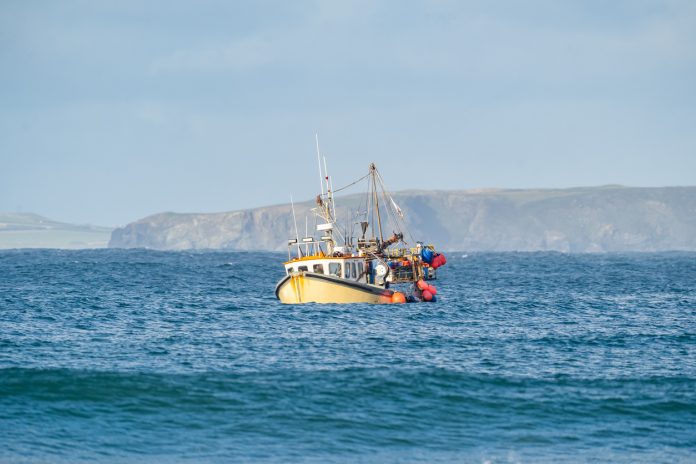Sandrine Thomas, a Small-Scale Fisher, states the case for putting small-scale fishers at the heart of the European Ocean Pact
I have been fishing for twenty years. For the past several of those, since COP15, I have also worked with Blue Ventures to promote the voices of small-scale fishers (SSFs) in ocean governance. Despite the essential role SSFs play in sustaining coastal communities and
ecosystems, we remain invisible primarily to European policymakers. The new European Ocean Pact, which fails to define or represent SSFs, risks continuing this ostracisation sufficiently.
The Pact’s stated ambitions to “promote a thriving blue economy and support the well-being of people living in coastal areas” are admirable. Yet they cannot be fulfilled without the acknowledgement of SSFs and the role we have to play, nor if legislation continues to favour large-scale industrial operators in terms of decision-making and access to funding and other resources. By failing to address this imbalance, the Pact will become another well-intentioned but ineffective policy.
The problem with the current discourse
This lack of acknowledgement of small-scale fishing and its role in sustainable ocean management is, in part, due to a lack of awareness among politicians. Only occasionally are SSFs highlighted or discussed as positive examples of fishing practice. Instead, large-scale industrial fishing dominates political discourse and is supported in policy.
The Ocean Pact, in its current form, focuses mainly on reducing or eliminating a few targeted practices, like trawling in certain areas and preserving some coastal zones. It does not meaningfully nor broadly address the industrial fishing practices that continue to damage ecosystems and monopolise resources. Crucially, it does not clearly define SSFs, nor does it acknowledge our diversity of methods and needs.
Policy without representation
One reason for this omission is structural: SSFs are not sufficiently federated or represented in the European Union (EU). In contrast, industrial fishing lobbies operate with enormous influence. The result is free rein for these lobbies and, in turn, policy that entrenches their dominance.
Article 17 of the Common Fisheries Policy, which requires Member States to use transparent and objective criteria, including those of an environmental, social and economic nature, when allocating their fishing quotas to vessels, is a prime example of this. It is a policy that could be transformative for SSFs and our oceans, but despite being enacted in 2013, is barely implemented. Instead, quotas remain concentrated in the hands of large industrial fleets, while SSFs are left with scraps.
The lack of transparency in quota allocation, combined with powerful lobbying, means that fishing opportunities have been effectively privatised and hoarded. Legal challenges drag on for years, with uncertain results, as we saw in the battle over access to bluefin tuna.
Why small-scale fishing matters
SSFs are not only a source of sustainable local food, but a vital knowledge base for scientists tracking the effects of climate change on marine species. We see shifts in migration patterns, breeding grounds, and species health in real time. We protect coastlines and maintain maritime traditions that bind communities together. We also operate more safely within ecological limits by favouring low-impact fishing gears.
And right now, a trend toward ‘legacy thinking’ or, in other words, clinging to outdated fleet structures, is preventing the renewal of SSF fleets. Many small boats are over 30 years old, creating safety and comfort issues and making the job less attractive to young people. Without urgent investment, SSF numbers will dwindle, and with them, our traditions, expertise and approaches that bring so many ecological benefits to the fishing zones we operate in.
What needs to change
If the EU is serious about making its Oceans Pact inclusive, SSFs must be given structural priority. That means:
- A clear definition of SSFs in the Pact reflects the diversity of gear types, species targeted, and regional practices.
- Enhanced representation at the EU level through a federated body able to participate directly in decision-making.
- Full implementation of Article 17, with transparent quota allocation favouring low-impact fisheries.
- Reserving the inshore 12-mile strip for vessels under 24 metres.
- Dedicated training programmes for young people to enter small-scale fishing and related maritime roles.
- Investment in modern fleets, replacing ageing vessels with safer, more efficient, and environmentally friendly boats.
Beyond these proposed changes, the public needs to be more aware of our work and the ecological and associated economic risks facing our oceans. Campaigns like Make Fishing Fair, a campaign coordinated by LIFE and Blue Ventures, play a role in warning politicians about these risks, but due to limited resources, this advocacy remains restricted to a small audience. They should be extended to the public. Consumers have a vital role to play in increasing demand for sustainably caught local seafood, creating another form of political pressure.
The way forward for the European Ocean Pact
The EU has an opportunity to align its Ocean Pact with its climate, biodiversity, and rural development goals, but only if it treats SSFs as central, not peripheral, actors. That requires more than rhetoric; it demands concrete commitments and funding.
As a small-scale fisher, I know the stakes. Our work is about more than earning a living; it’s about stewarding the seas for future generations, and we’re ready to take up this mantle. The question is: will the EU finally give us the place at the table we deserve?











